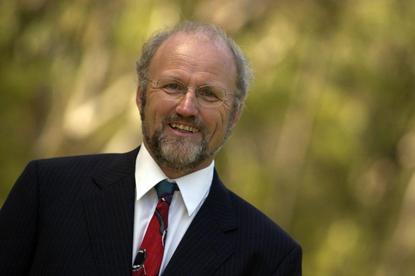Telco analyst rails against NBN financial model
- 13 February, 2019 10:18

Telecommunications analyst, Paul Budde
Telco analyst Paul Budde continues to hit out at one of the most talked about infrastructure projects in recent times, criticising the current financial model of the national broadband network and skeptical whether we will get NBN 3.0 right this time.
In a recent analysis piece and in speaking with CIO, Budde said while NBN co’s current financial model is not well suited for the next step in broadband deployment, “a willy-nilly write off is certainly not what is needed to fix the problems.”
Instead, he said the government needs to do a “national cost benefit statement” to properly take the national interest into account and put a value on productivity, innovation and cost savings.
“Before any serious decisions are taken in relation to the NBN we do need to have all the financial facts on the table - so far NBN Co have only publicly provided selected data.”
No doubt, the NBN has been mired in controversy and undergone many redesigns. But one thing is definite: all Australians are expected to access the NBN by 2020 as installations continue to ramp up.
In the meantime, Budde said a cost benefit analysis is needed to address the “fundamental issues” on why we are building the NBN - what part of the investment can be done in a commercial way and what part needs government investment based on the benefits it will deliver to the national good?
“The latter will see its return through productivity increases, cost savings and other economic benefits - such as new jobs and business activities, over a longer period, the commercial part can be financed along well-established commercial processes.”
‘Current NBN mess’
To analyse the “current NBN mess,” Budde looks to 2005 - the year the government was interested in broadband as a common good. He explained now is an "opportune time" to look at the problem in more detail given there’s an election looming and possible change of government.
“One of the reasons why in 2005 the then government was interested in broadband as a common good was based on presentations and discussion on the social and economic benefits what such a national infrastructure project had to offer. We discussed the digital economy, e-health, e-education, e-government, smart energy and so on.
“While these were all important elements that were discussed, even in a range of personal meetings with various cabinet ministers when it came to the crunch during election times, these issues were put in the too hard basket as they were very hard to grasp for those steeped in neoliberal economics, those benefits were often even laughed at by economists and finance experts. None of the political parties dared to launch a cost benefit analysis taking such national benefits into account.
“This is in my opinion the key reason why we have ended up with the current NBN mess. It is impossible to build such a network purely based on neoliberal economics, if you want to truly promote this as critical national infrastructure you will have to take the national interest into account and put a value on productivity, innovation, cost savings and so on,” Budde said.
Budde explained that simply saying the NBN is in the national interest is no longer enough - it needs to be far more specific and we need to specify this in a national cost benefit statement. In a nutshell, the investments need to be based on a proper national infrastructure plan, he said.
“It will be difficult to come up with hard economic figures that exactly calculate all those benefits, but politicians should be brave enough to accept a best national effort on this. In the end they are the ones who have to show leadership and make the decisions; economists, financiers and others are simply there to advice. For this we need progressive, not conservative politicians to take the NBN to the next stage,” he said.
In moving to the next stage, Budde suggested 50 per cent of the investment be earmarked for the national good and the rest to be financed commercially based on a long-term utility investment model.
“This would fit in nicely with predictions from others that roughly 50 per cent of the current investment needs to be written down/revaluated/reclassified in order to make it a proper investment for the upgrade of the network that needs to take place over the next five to 10 years.
“As has become clear from the recent ACCC report this will largely involve the FttN part of the network, again totally in line with earlier predictions, in other words this write-down could have been avoided if the project was done right from the beginning,” he said.
“Obviously, such a plan will need to be looked at in detail by economic and financial experts; however, it will require political leadership and a solid progressive cost benefit statement from the government. If we continue with the NBN based on conservative neoliberal policies than also NBN 3.0 will fail.”

